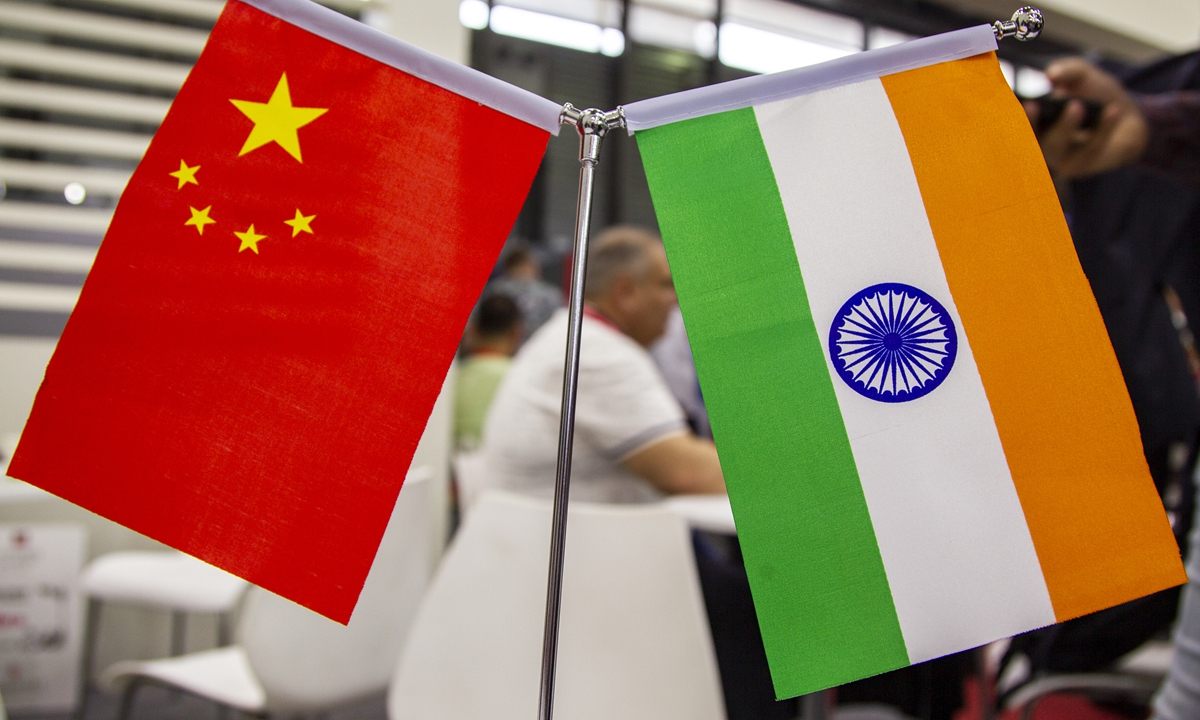China-India border skirmishes may become a new normal
By Huang Kangrui Source: Globaltimes.cn Published: 2020/9/26 18:04:05

China India Photo:VCG
In 2020, China and India have gone through a series of border conflicts. The governments and military officials from both countries have held multiple meetings on different occasions discussing the border crisis. The sixth round of military commander-level meetings between the two sides was held on Monday to further de-escalate border tensions.
Yet, it seems that the two sides have fallen into a circle of standoff — talks — standoff — talks, again and again. Against this backdrop, it is believed that three phenomena in India should be paid attention to.
Firstly, the Indian government has lost its grip on restraining certain forces of the military. Since the conflict first started in May, China and India have held many talks. On June 10, the Chinese Ministry of Foreign Affairs noted at a regular press conference that "through diplomatic and military channels, China and India have recently had effective communication and reached agreement on properly handling the situation in the west section of the China-India boundary." However, on June 15, the situation sharply worsened: Indian troops illegally crossed the Line of Actual Control (LAC) and deliberately launched provocative attacks that directly resulted in the bloody brawl of the Galwan Valley. It is hard to imagine that the Indian army's moves did not have the acquiescence or support of high-level officials.
Indian front-line troops' provocative actions obviously violated the consensus reached by the two governments. It should be expected that this force will continue to repeatedly disturb China-India border issues.
Secondly, there are profound divergences over China policy within India. Taking a look at the statements of India's different departments on border-related incidents, it is obvious that their attitudes and positions are quite different. Indeed, different departments have their own interests, so their actions are oftentimes not coordinated. Among them, the stances of the military and ministry of foreign affairs are very different, sometimes even conflicting.
On September 10, the foreign ministers of China and India held a dialogue to cool down border tensions. The meeting in Moscow conveyed the desire of both sides to maintain peace and stability before they reached a five-point consensus.
The next day, however, Bipin Rawat, chief of defense in India, took a very tough attitude and publicly declared that India's armed forces are ready for any eventuality.
Thirdly, external forces are fueling potential China-India border clashes. In May, the White House released the "United States Strategic Approach to the People's Republic of China," stating that "the United States will increase public pressure on the PRC government." It is regarded as one of US' guidelines to comprehensively contain China's development in the future
Due to the different positions of India's departments and the uncontrollable forces within the Indian military, external forces have the opportunity to take advantage of the conflicts on the China-India border.
The divergences among India's different authorities will not disappear any time soon, neither will the uncontrollable forces within the Indian military cease their provocative activities. The border issue is not just influenced by the China-India bilateral relationship, so it will be hard to wipe out border skirmishes quickly. Conflicts could sadly become a new normal along the border.
India's infrastructure and transportation capacity are, however, not strong enough to support a large-scale and long-term military confrontation along the border areas, meaning that the scale of future border clashes will be limited.
For China, we should stay alert to the possible new normal, and prevent India's radical forces from taking more provocations on border issues as an attempt to seek their political interests. Meanwhile, China should proactively conduct dialogues with peace-loving forces in India and strive to jointly control the crisis, as this serves China's core interests.
The author is assistant researcher at Center for the Study of Religion and China's National Security at Fudan University. opinion@globaltimes.com.cn
RELATED ARTICLES:
Posted in: VIEWPOINT